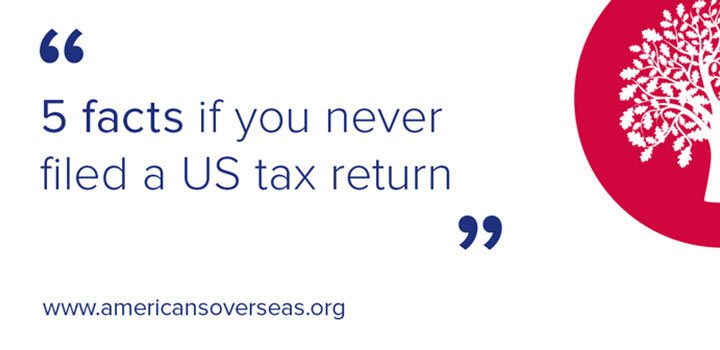
CARES act financial support for all Americans Overseas

The US has passed a financial support package for all Americans also the ones living Overseas. It’s called the CARES act (Coronavirus Aid, Relief, and Economic Security)
In short: You will receive a cheque up to $1.200,- automatically from the US government if you don’t make over $ 99.000,- and have filed your 2019 or 2018 return, again also when living overseas.
The US has launched a financial support package for all Americans, also the ones living Overseas. You’re eligible to receive a a cheque up to $1.200,- automatically from the US government if you don’t make over $ 99.000,- and have filed your 2019 or 2018 return.
Here’s how the CARES act will work
The IRS is going to take a look at your 2019 tax return. Fear not, if your 2019 return has not yet been filed, the Service will grab your 2018 return instead.
Once the IRS has either your 2019 return, 2018 return, or Social Security statement, it’s going to cut you a check for up to $1,200 (if single/$2,400 if married filing jointly) PLUS $500 for each child under the age of 17.
Examples CARES act
- Example. A is a single taxpayer. On A’s 2019 tax return, A had a gross income of $50,000 and an income tax liability of $1,000. Despite the fact that A’s tax liability for 2019 A was only $1,000, A is entitled to receive a check for $1,200.
- Example. B is a single taxpayer who has not yet filed a 2019 return. In 2018, he had a Social Security income of $10,000. As a result, he did not file a tax return because his income was less than the $12,000 standard deduction. The IRS will access B’s Social Security statement for 2018, and issue a check to B for $1,200.
- Example. H & W are married with three children. On their 2019 tax return, they reported taxable income of $60,000 and had a tax liability of $5,000 before withholding and credits fully eliminated the liability and gave rise to a $3,000 refund. Nevertheless, H & W will receive a check for $3,900 from the government as part of the 2020 stimulus payment.
Valid Social Security Number Needed
Not everyone gets a check, however. You’ll need to have provided a valid social security number for yourself, your spouse, and any qualifying children on your tax returns, and those who are claimed as a dependent on another’s tax return also won’t be receiving a payment.
Finally, those on the higher end of the income scale will be shut out of the program because the payment phases out once your “adjusted gross income (AGI)” — think: total income minus a handful of deductions — exceeds $75,000 (if single, $150,000 if married). Once over those thresholds, you’ll lose $5 of your payment for every $100 your AGI exceeds those thresholds. So…
- If you are single with no kids and would be due a payment of $1,200, it will be wiped out completely if your AGI exceeds $99,000 (($99,000 – $75,000) * 5% = $1,200).
- If you are married with no kids and are due a payment of $2,400, it will be gone if your AGI exceeds $198,000 (($198,000-$150,000)*5% = $2,400).
- If you’ve got kids, then obviously, it will take more income before all of the payment is wiped out. For example, a married couple with two children who is eligible for the maximum payment of $3,400 wouldn’t lose all of their payment until AGI exceeded $218,000.
CARES act payments
The payments will be made between now and December 31, 2020 — in many cases, it will be paid electronically if you have provided direct deposit information to the IRS on your 2018 or 2019 tax returns — but it’s important to understand that any payment you receive acts as an advance payment of a credit you will compute AGAIN on your 2020 tax return.
What that means is that when 2021 rolls around and you prepare your 2020 tax return, you’ll have to recompute the amount you’re owed based on 2020 data. Now, a lot of things may be different in 2020 when compared to 2019 or 2018: you may have more income or less tax liability or fewer kids under age 17…. you get the idea.
In any event, you’ll have to compute the payment owed to you based on 2020 data, and compare it to the advance payment you actually received. If the advance payment was less than what you are owed in 2020— for example, you were phased out in 2019 but not 2020 or you had another child — the excess will be treated as a credit that reduces your 2020 tax liability.
If the advance payment is GREATER than what you’re owed on your 2020 tax return, however, the question becomes: what then? The CARES Act does not explicitly require income recognition for any excess, as was required by its counterpart in the House. Nor is there a mechanism for a taxpayer to repay any excess advance payment. Thus it is entirely possible a taxpayer could, for example, receive an advance payment in 2020 based on 2019 or 2018 income, only to find themselves ABOVE the phase-out threshold in 2020, giving rise to no credit on the 2020 return, and yet still not have to repay the excess amount to the IRS.
Putting it all together, some people will NOT receive an immediate check — because they did not file a 2018 or 2019 return and do not receive a Form SSA-1099, Social Security Statement. If that taxpayer files a 2020 return, however, he or she will receive a credit equal to that payment, provided income, filing status, and family size haven’t significantly changed. In other words, as long as you file a return in ANY ONE of 2018, 2019, or 2020 and don’t have income in excess of the phase-out threshold, you’ll be getting either an advance payment or a credit.
Example. A is single and 30 years old. In 2017, A decided to go to graduate school full-time. A goes to school in 2018 and 2019, earns no income, and files no tax return. As a result, A does not receive a check for $1,200 as part of the stimulus package in 2020. If A files a 2020 tax return, however, A will receive a credit against her tax liability in 2020, effectively putting an extra $1,200 into A’s pocket.
Need more information about the CARES act?
If you haven’t filed yet please contact us and we will help you prepare your return.
We kindly ask you instead of calling or emailing please check our website and/or social channels (links below) for updates.
Contact us for more information
Disclaimer
No action should be taken based on Americans Overseas information without seeking proper professional and or further consultation. Americans Overseas can in no event be held liable. Americans Overseas therefore urges client to do their own due diligence.
Source: Congress.gov
Frequently asked questions
Understanding the US tax system, the obligations, and all the additional terms can be difficult. Especially if one lives outside of America. Is your question not answered? Contact us.
-
Who is required to file taxes in the US?
U.S. citizens and resident aliens who live abroad are generally required to file a federal income tax return and pay taxes on their worldwide income.
Read more... about Who is required to file taxes in the US? -
Do US citizens living abroad still have to file taxes in the US?
Yes, US citizens are required to file taxes on their worldwide income, regardless of where they are living.
Read more... about Do US citizens living abroad still have to file taxes in the US? -
How can I cash my US check?
Received an American check? You can cash your check in the following ways: cash the check at your own bank, transfer to another person (endorsement), cash checks using an online service or cash the check by another bank.
Read more... about How can I cash my US check? -
Are there any special tax forms required for US citizens living abroad?
US citizens living abroad may be required to file Form 2555 and/or Form 1116 to claim the foreign-earned income exclusion.
Read more... about Are there any special tax forms required for US citizens living abroad? -
What is FBAR filing?
FBAR (Foreign Bank Account Report) filing is the requirement for certain U.S. individuals and entities to report their foreign financial accounts to the Financial Crimes Enforcement Network (FinCEN) of the U.S. Department of Treasury. The FBAR filing requirement applies to U.S. persons who have a financial interest in, or signature authority over, one or more foreign financial accounts if the aggregate value of those accounts exceeds $10,000 at any time during the calendar year.
Read more... about What is FBAR filing?





